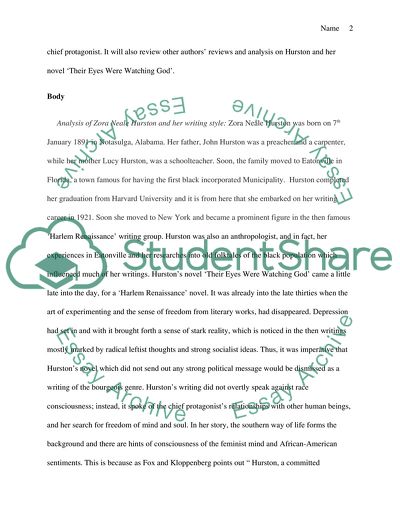Cite this document
(“Their Eyes Were Watching God Essay Example | Topics and Well Written Essays - 1500 words”, n.d.)
Retrieved from https://studentshare.org/miscellaneous/1562514-their-eyes-were-watching-god
Retrieved from https://studentshare.org/miscellaneous/1562514-their-eyes-were-watching-god
(Their Eyes Were Watching God Essay Example | Topics and Well Written Essays - 1500 Words)
https://studentshare.org/miscellaneous/1562514-their-eyes-were-watching-god.
https://studentshare.org/miscellaneous/1562514-their-eyes-were-watching-god.
“Their Eyes Were Watching God Essay Example | Topics and Well Written Essays - 1500 Words”, n.d. https://studentshare.org/miscellaneous/1562514-their-eyes-were-watching-god.


